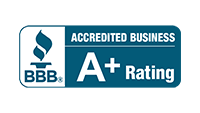
The question of whether Google Ads is the right platform for your business is a common one. In our experience, there is no good reason to steer clear of Google Ads unless your products or services are not viable or your budget is limited. Google is the largest search engine in the world and offers a powerful platform for growing your business.
If your company offers a valuable product or service, then advertising on Google is a no-brainer. The key to success with Google Ads is ensuring you are doing it right and getting an ROI. This requires a solid PPC strategy that a knowledgeable team or individual carefully manages. If you get it right, your business growth could double, triple, or even quadruple from the PPC side of your marketing alone.
However, every industry is unique and presents its challenges when it comes to Google Ads. This is why it’s important to understand the recommended strategy for success based on your business model and industry. This guide will explore the challenges and provide recommendations to help you succeed with Google Ads.
PPC vs. SEO Methods
The notion that SEO is a cost-free method for appearing in search engine results, while PPC requires investment, is controversial. However, when you look at the differences between these two methods, it becomes clear that relying solely on SEO is not practical for long-term business success. Even if you do everything right, there is no guarantee that you will achieve a top ranking in the organic search results.
SEO is a challenging and uncertain way to boost online visibility compared to PPC advertising. Despite efforts to create high-quality content and follow SEO practices, there’s no guarantee that your website will achieve high organic rankings. Even if you have great organic listings one day, they could be instantly lost when Google updates its algorithms. Additionally, your competitors are probably investing in PPC, which makes it difficult to compete. Furthermore, SEO is not actually free; it requires consistent resources to produce and optimize quality content.
If you face challenges with Google Ads, like high costs or low conversion rates, you’re likely making mistakes in your campaign management. Investing time in learning about Google Ads, including key concepts like bidding, match types, negative keywords, and budget management, is crucial. Additionally, the landing page of your website is an important factor in determining success with Google Ads. Even if you secure cheap clicks, they will not result in conversions if your landing page is not optimized.
Time-Management
The Google Ads interface is not designed for the multi-tasker. Analyzing data, optimizing campaigns, and maintaining the organization of your account can consume a significant amount of time and become a full-time job. Unless you have the time and expertise to stay current with the evolving world of PPC, consider the following options:
- Hire a dedicated PPC employee who can be responsible for your account, running ads on various networks, and bringing in new business from your paid advertising strategy.
- Another option is to outsource to an agency. The agency would be responsible for your PPC account, running the ads, and bringing in new business from the paid strategy.
I’m a Newbie
Don’t worry! It’s okay to admit that your PPC skills need improvement. The first step to mastering PPC is recognizing the need to learn. While you may understand the difference between paid and organic listings, other aspects, such as account structure, proper use of match types, and negative keywords, may need to be clarified. There are many free resources online to learn the science of PPC.
My Business is B2B
The B2B sector faces its own set of challenges, such as lengthy sales cycles and a targeted audience. Although some may consider PPC a hindrance, numerous B2B companies have found that PPC is an integral part of their lead generation strategy. As long as you execute Google Ads correctly, you can achieve success. Here are some tips to ensure your Google Ads success:
- Conduct keyword research to understand how your target audience searches during the buying cycle.
- Bid on keywords related to problems and direct your ads to solution-focused content.
- Create a custom advertising schedule that targets the most profitable hours, typically during working hours from Monday to Friday for B2B offerings.
Retail Space Tips
In the retail industry, competition for Google Ads advertising is intense. Adobe’s Digital Index reports that retailers’ spending on Google shopping ads increased by 47% from the previous year. However, not advertising on Google may limit your ability to grow your business as many shoppers begin their search through Google.
- Use Google Shopping Ads: Display an image, price, your brand, and even reviews, allowing the searcher to get all the information they need, leading to high-intent clicks that are cheaper and have higher conversion rates.
- High-Quality Images and Accurate Prices: Ensure the images for your shopping ads are high quality, and the prices are accurate.
- Utilize Remarketing: Re-engage searchers and push them down the funnel with remarketing.
- Don’t Neglect Search Ads: Text ads are still important for retail marketers to raise brand awareness and create repeat buyers.
- Automation: Tools such as ad customizers, dynamic remarketing ads, and ad scheduling will save you time and resources.
- Seasonal Peaks: Understand your seasonal peaks and adjust your Google Ads budget accordingly, especially for events like Black Friday and Cyber Monday.
Local Spaces
Pay attention to the impact of Google Ads on driving local foot traffic to your store. People often use Google to search for nearby businesses, whether it be for a new restaurant, dental office, or a baby clothing store. To succeed in local PPC, it is important to focus on the following factors:
- Maximize the impact of your budget by accurately targeting your location in Google Ads. Choose the most appropriate radius to reach your desired audience.
- Optimize your Google My Business profile: A free and simple way to showcase your business effectively on search results pages.
- Implement a call plan. Phone calls are essential for local companies, so you should use call-only campaigns and call extensions. It’s also necessary to monitor calls for optimal Google Ads account performance.
- Make information accessible to searchers through SERPs using all relevant ad extensions, such as call, location, site links, and callouts.
Final Thoughts
Google Ads is a powerful tool for growing your business if managed correctly. A solid PPC strategy and a knowledgeable team are key to success. Google Ads requires a customized approach based on your business model and industry, including A/B testing for effective messaging. PPC investment is necessary for growth but can present challenges like high costs or low conversion rates. Consider hiring a PPC expert or learning online to succeed with Google Ads.
If you’re ready to start, check out our blog on building an efficient paid search account structure. Or reach out and let us help you with Google Ads.





